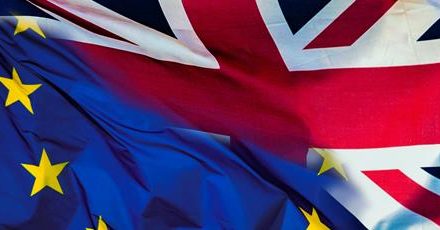Yesterday the Prime Minister gave evidence to the Liaison Committee, Sir William Cash made the following questions:
Sir William Cash: Good afternoon, Prime Minister. When you opened, you referred to a joined-up approach. My European Scrutiny Committee has called on our ambassador to the EU, Sir Ivan Rogers, to see us shortly. He made some pretty controversial remarks the other day. Complementary to these activities across the board in COREPER and UKRep—United Kingdom permanent representatives—there is also this question of the co-ordination with the Cabinet Office, which also has to deal with my Committee. Do you have in No. 10 a fully specialised unit with specialists who deal equally with the negotiating instruments regarding political, economic and trade policies? Do they meet you personally in No. 10? Do they do so on a regular footing? If they don’t, do you think that it ought to happen?
Mrs May: I have set up a unit in No. 10 of people with expertise in European matters who are working with DExEU and other Departments on both issues relating to Brexit and particular decisions that we have to look at, as a member of the EU, as we go forward. They do see me, and I do meet with them regularly.
Sir William Cash: What assessment have you made with regard to the trade-off between your red lines—no EU law primacy, no ECJ adjudication and control of borders—and those aspects of our relationship with the European Union that you want to maintain?
Mrs May: I don’t look at these things in terms of trade-offs between these issues in quite the way that is sometimes portrayed. I think that what is important is that when we look at this negotiation, we take the view not that, “We are currently members of the EU; we are going to leave, but how can we kind of keep bits of membership?” Actually, what we need to say is, “We are currently members of the EU. We are going to leave the European Union, and we need to negotiate a new relationship with the European Union”. So the question is: what do we wish that relationship with the EU to be? I think that this is very important, in terms of how we approach this. It isn’t, as I say, about trying to replicate bits of membership; it is about saying, “What is our new relationship?” and I am ambitious for what that relationship can be.
Sir William Cash: And you are entirely satisfied that at the end of this process, not only will we have repealed the European Union legislation but, in addition to that, it will be absolutely clear that all legislation from that moment onwards will be within the jurisdiction of Westminster and not the EU?
Mrs May: We will have repealed the European Communities Act—that is part of what the great repeal Bill will be about—and from the point at which we have left the European Union, it will be the British Parliament and British courts that decide our legislation.
Sir William Cash: Finally, as you will appreciate, there are many people who want us to move quickly in relation to all these matters. I appreciate that there is a timing issue, but do you not want to get on with this as quickly as possible, because the certainty that comes from that is what a great deal of the business community and other people in our civil society want—to reflect the outcome of the referendum as soon as possible?
Mrs May: I think it’s right that people want to reflect the outcome of the referendum as soon as possible, but it is also right that the Government need to ensure that we take the time to prepare properly for the negotiations. That’s why I said at a very early stage—actually before I become Prime Minister—that we shouldn’t trigger article 50 until the end of this year. I then looked at the timetable—obviously, in Government, we looked at the timetable—and the triggering was a balance between giving us sufficient time to have made those preparations, and actually giving the 27 time to prepare for their side of the negotiations, but also recognising that the British public want us to get on with it.
William Cash: Thank you very much.

